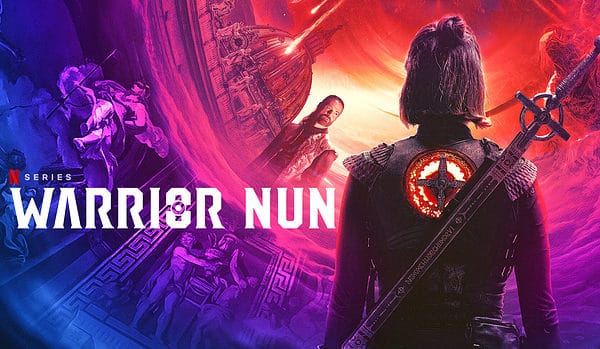A good friend of mine suggested that I watch the debuting story of a writer and feminist activist, Elena Ferrante. How could I not? Let me tell you, it did not disappoint. If you like to see movies that challenge gender roles and stereotypes, then scroll down for a wrap-up of this prodigy.
As girls and women living in patriarchal societies, we are pretty much raised by the same old narratives. Society expects us to behave, nurture, care, work (but not too much so that we don’t steal the “power” of our men counterparts), commit, smile, and keep going until we can no more.
All of this burden is doubled upon mothers, and yet, this same society continues to glorify motherhood forcing women to smile and feel no pain all the way through it. Even further, society condemns women who do not want to ever experience motherhood and makes them feel like aliens who do not belong anywhere. Because who doesn’t want kids, right? Well, not quite right. Some women do not want kids. Just like there are many men who do not want to have kids. Some people are self-sufficient enough and want to commit to other things in life. And society should learn how to respect these choices, considering that the alienation of women who do not want to become mothers often leads them to a wrong, imposed choice of doing so.
“The Lost Daughter” Discusses Some Aspects of That
“The Lost Daughter” is a movie written by Elena Ferrante, and directed by Maggie Gyllenhaal, starring amazing Olivia Colman as Leda (yes, an all-women team how amazing is that). Leda is your typical academic, who has collected a few books and wants to relax on her own by the Greek beach. From the beginning, she makes it clear that she does not want her silence and composure to be threatened or shared with anyone. She makes this clear even to the proprietor (Ed Harris) who tries to small talk with her by showing her the place where she will be staying.
As Leda starts to enjoy her days at the beach, she happens to be sitting right next to a troubled family, where a young mother catches her attention. The mother she becomes attached to throughout the movie is Nina (Dakota Johnson). Leda observes as Nina’s nerves continuously get wrecked by her little girl, through her constant demands and need for attention. Nina seems to have a husband, who does not help her out with the little girl, letting her deal with all the care, responsibilities, and nerve-wracking cries – typical scenario, right?
The two (Leda and Nina) start to connect when Nina’s little girl gets lost on the beach, and Leda finds her and takes her to her troubled mother. What is not found along with Nina’s little girl, is her accompanying doll – which Leda finds and for some reason hides. I will leave this upon you all to define or try to understand why she does what she does.
Throughout the movie, you can tell how the looks between Nina and Leda are full of solidarity. They see one another, they sort of contemplate one another, although Nina does not know what Leda has been through as a mother of two girls.
Nevertheless, days on the beach continue as Leda now intentionally sits close to the loud family. It’s like she tries to get closer to Nina and let her know that it is ok to have your mind blown off sometimes, especially as a young mother. As she sees the uncertainty, anxiety, and sadness in Nina’s eyes, Leda constantly has flashbacks of the times she was a young mother.
Scenes appear showing her making some not-so-ordinary choices, where she leaves her little daughters with her husband and chooses to pursue her career instead. Earlier scenes show Leda trying desperately to have some time off for herself, and re-gain her sense of self. However, all this does not mean that she does not love her daughters. She just loves them in a way you’re not usually used to seeing mothers love.
Leda and Nina even share a story of a marital affair, which makes Leda connect to her even more and try to help her see her lover. Continuously the two of them share an overwhelming burden of responsibility, guilt, and a need for someone to point out that motherhood is awfully consuming, besides being all flowers, daisies, and sweet talks.
Personally, I would recommend this movie to all persons, women, and men who identify as feminists and who think that the responsibilities of care for children are unequally shared throughout the whole world. With mothers mostly still carrying this burden on their own, and rarely, much more rarely with their partners.
Lastly, the movie is based on Elena Ferrante’s book “The Lost Daughter”, and if you want to see the bigger picture you need to read it. Thank me later!
Read another review here:
Insecure – The Unruly Waters of Adulthood on the Small Screen
Support us!
All your donations will be used to pay the magazine’s journalists and to support the ongoing costs of maintaining the site.
Share this post
Interested in co-operating with us?
We are open to co-operation from writers and businesses alike. You can reach us on our email at cooperations@youthtimemag.com/magazine@youthtimemag.com and we will get back to you as quick as we can.









